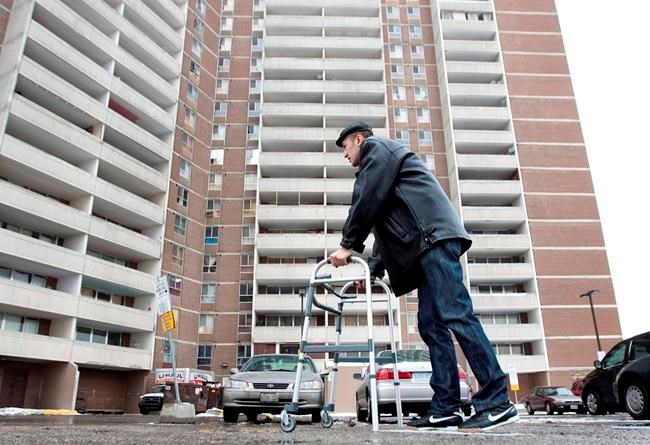TORONTO — Ontario should consider additional penalties for supervisors who break construction rules, jurors at an inquest recommended Friday after examining the circumstances of a scaffolding collapse that killed four men in Toronto more than a decade ago.
The recommendation was one of seven put forward for the Ministry of Labour to consider after the week-long inquest that found the four men died in a workplace accident due to their fall from a suspended work platform.
Jurors also recommended the ministry conduct scans of other jurisdictions' use of emerging technologies to proactively reduce workplace injuries and fatalities, and consider reviewing the frequency of refresher courses on suspended access equipment.
They further recommended requiring any supervisor of employees working at heights to take specific "Working at Heights" training.
Dr. John Carlisle, the presiding coroner, said he hoped the inquest helped the loved ones of those who died.
"We hope this process has given some measure of closure to them and that the improvements, which have been made and will be made, will serve as something of a memorial to their loss," he said.
The Ministry of Labour said it would "immediately" begin reviewing the recommendations.
It also noted that steps have been taken to improve workplace safety, such the hiring of new inspectors for health and safety workplace visits, and the completion of a five-year review of the Working at Heights training standards, with revised standards slated to be released this spring.
The inquest examined the deaths of Fayzullo Fazilov, Alexsandrs Bondarevs, Vladimir Korostin and Aleksey Blumberg, who all worked for Metron Construction.
The men died after the swing stage they were on suddenly collapsed on Christmas Eve 2009, causing them to fall 13 storeys to the ground.
Another worker was seriously injured, and a sixth — who was tethered, as required under provincial law — was left hanging in mid-air but wasn’t hurt.
The project manager, Vadim Kazenelson, survived the collapse by holding on to a balcony when the scaffolding fell.
Kazenelson was later convicted of four counts of criminal negligence causing death and one of causing bodily harm after an Ontario court found he was aware that protections against falls were not in place.
In convicting him, a judge found that Kazenelson knew only two tethers were available on the swing stage for the six workers on board but failed to rectify the situation.
He was sentenced to 3 1/2 years behind bars and his appeal was unsuccessful.
In dismissing his appeal, Ontario’s top court agreed with the trial judge that Kazenelson had failed to take reasonable steps to prevent what was one of the province’s worst workplace accidents.
This report by The Canadian Press was first published Feb. 4, 2022.
———
This story was produced with the financial assistance of the Facebook and Canadian Press News Fellowship.
Noushin Ziafati, The Canadian Press

